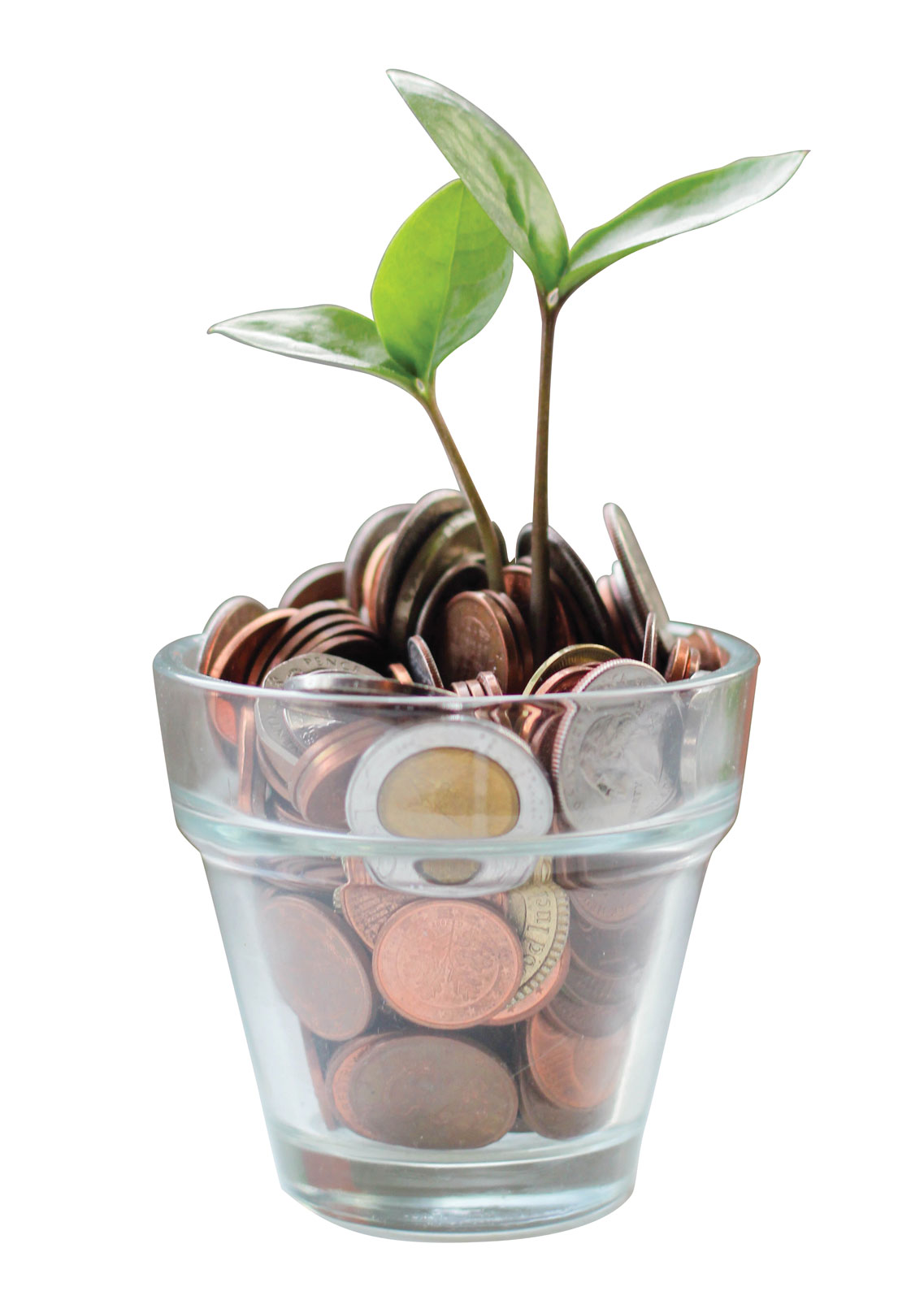Get Your Share

- Written by
- Dyani Van Basten Batenburg
Is it time to take stock of your future?
For those of us unimpressed by the current state of the property market – join the party. Fortunately, home ownership is not the only option we have when it comes to getting ahead, saving or soldiering into future retirement – but it does involve letting go of the quarter acre dream and picket fence that us Kiwis have long been seduced by. Our housing market may be one of the most unaffordable in the world, but our share market is top of its class. According to Credit Suisse’s latest Global Investment Returns Yearbook, New Zealand’s share market is the fourth-best performing on the global stage – go us! And, unlike housing – limited by supply and demand – the share market delivers greater opportunity to diversify investments across multiple countries and industries. No picket fences required.
So, where to begin a share market journey? And what exactly should that journey ‘look’ like in the big scheme of things: what should the term of your investment be; how much and who to invest in; and when can I start? Think long, aim wide and consider the bigger picture, say share experts.
Go long
First things first, what’s the share market’s deal as a whole? In a nutshell, share markets across the globe perform two key functions:
- They allow companies to raise capital from the public to invest in ideas and assets and,
- They allow owners of companies (shareholders) to buy and sell their shares.
Essentially, if you own shares in a business, you own part of that business. Instead of owning the whole company outright, you own a small percentage of that company (with some paying out six monthly/annual dividends), and gifting (hopefully) greater returns when you sell off your share portion down the track.
“The reason share markets came into being is that there were a whole lot of companies out there that wanted to get bigger, so they needed to bring on outside capital to do that,” explains Mark Lister, head of research at Craig Investment Partners. “And, then you have people with excess savings pools who are wanting to invest it in something. So, share markets facilitate that – they match up the investors with businesses.”
Regardless of business type or amount of dollars to invest, traditionally a long-term mindset is what many investors possess, says Oliver Mander, CEO of NZ Shareholders Association.
“Investing is all about the long-term – and by that, I mean decades. While many people get worried about even day-to-day fluctuations in value, a long-term, diversified collection of shares or funds will help people be better off in the long-run,” he says. “Over the long-term (i.e. the last 100 years), the average return on most global markets has been around 8% each year. However, that masks periods of much higher returns marred by significant downturns – like 1987.”
And long-term those share market gains are much higher than that of property, adds Mark.
“Just take Auckland for example, across the last five years, share returns are almost double per annum. The NZX50 Index rose 13.2% per annum and real-estate 7.1% per annum,” he says. “Whilst we don’t expect those leaps and bounds to continue – and I caution anyone looking to start a share portfolio not to use the growth gains across the past five-to-10 years as a blueprint, because it hasn’t been a ‘normal’ period of investing – the share market will typically gift you higher returns on investment.”
For Bay of Plenty locals, Sue and Allan Dent, who started their share market journey 40 years ago – it was never intended as a short-fire way of bringing in the bucks – and it’s paid off.
“When we started, Allan was working on the oil rigs in Australia and he was getting tip offs about gold mine investment. So, we started our portfolio and have kept our initial investments with three of those companies, and expanded to include others across various industries,” says Sue. “We get our dividends paid out six monthly and are able to now sell off shares to pay for everyday costs and extra expenses without actually reducing the equity of our portfolio as the others are rising – it evens itself out.”
Despite having some “horrendous” losses, the Dents took it all in their stride and maintained pace.
“I remember we made huge money through one gold mine and we reinvested the whole lot (close to $500,000) into another Australian company. Well, they went crook – they hadn’t been true in their reporting – we lost everything. But that wasn’t the endgame, we experienced great highs and lows – and knew we had to just keep persevering. And 40 years later here we are.”

Spread it
All investments, including shares, involve risk – but with shares, comes a little more ease as compared to that of housing, says Mark.
“With shares you have no running costs, no maintenance, ease of accessibility to buy them. And it’s easy to diversify them – you can spread $10 to $100,000 right across the world – which reduces risk,” he says. “That diversification means that even if one or two go really badly, the other shares in your portfolio will balance those losses out.”
There is no such thing as a ‘safe’ investment. However, in theory though, the more risk attached to an investment, the higher the return should be.
“And of course, if something seems too good to be true – then it probably isn’t true,” adds Oliver.
Thinking further afield means accessing all these other interesting companies that are doing great things too.
“Why wouldn’t you diversify!? New Zealand could have an earthquake, a great outbreak of foot and mouth disease, the government may make some really poor decisions. Often, we have our house and business in New Zealand – many of us are massively dependent on New Zealand ‘doing well’ – so when it comes to shares, I think it’s sensible to have some of your money offshore,” says Mark. “Historically we know that shares yield a higher return than property, but you will have to stomach all the ups and downs along the way.”
Speak up
So, with diversity and long-term forecast in play, what to actually look for in a business when choosing who to invest with? Firstly, understand the business you are buying into. Its story, including what it does, how it thinks it will grow and where its challenges lie.
“We look for a strong market position – businesses that are really good at what they do. Maybe they’ve got the best product, maybe the best market share, maybe they are more innovative, or have the strongest brand. We also look for a strong future growth profile, for example this might be a retirement village because we have an ageing population. Something that’s the opposite might be an oil company as we move away from fossil fuels. So, you isolate those businesses based on where you see a growing customer base or demand,” explains Mark. “Next we look for a good management team – you back the jockey as much as the horse – because the quality of that team is really important. It can be really hard assessing this aspect because it can be subjective and access to company information can be limited. But save getting in front of them, you can read public records, reviews – do some investigative journalism.”
Having a ‘portfolio plan’ that gives you good diversification across a range of industries and geographies is a must, says Oliver, and the exchange-traded funds on the NZX can help with that.
“Typically, a smaller new entrant has the potential to disrupt the bigger players or fall flat on its face. For most people, we don’t want our portfolio to be loaded up with established players (we want some of these because in most cases they will withstand a recession), we want some new exciting ones in there too because they hone that long-term growth.”
Start me up
Typically, share buying was touted as an older person’s game – the traditional mum and dad investors with a bit of cash behind them. However, the tables have turned, largely because the concept of dealing with sharebrokers and the stock exchange seemed inaccessible to most, and once upon a time you needed at least a few thousand to make it worthwhile.
The ‘new’ investor is much more likely to be young, with an equal mix of gender, and from a cross-section of New Zealand society.
“Nowadays, new platforms like Sharesies, Hatch and Kernel have helped to make investment much more accessible to everyone,” says Oliver. “That’s a great thing – it allows people to invest what they can afford and at a pace they can maintain. Just be aware these platforms are facilitators – they won’t guide you.”
And as for the rise of cryptocurrency – that’s in another investment class of its own – and its impact on the share market – if any – is unknown, say both Oliver and Mark.
“Cryptocurrency is just a lot riskier than the likes of property, shares or a term deposit because it’s not backed by a ‘real’ asset,” says Oliver. “Lovers of crypto won’t like me saying that, as they say there is finite supply that underpins the value and that cash isn’t ‘real’ either. I disagree – anyone can start up a competing cryptocurrency – but a government currency, like the NZ dollar, is backed by the assets and income of the country that supports it.”
Watch this space, adds Mark. “There’s a lot of interest in it and it’s definitely something to watch closely to see how it plays out.”
Something 21-year-old Aucklander Reuben Armstrong and his friends are already doing intently.
“I started investing in crypto about four months ago, my good friend a little before me and also my older brothers and their friends last year. We see it for the short-term gains – I want to travel next year so am hoping to make a decent amount this year to make it happen,” he explains. “At this stage I’ve invested $5000 in crypto and I’d like to see that jump substantially by the end of the year. My friend, for example, has already made $20K this year and is on track to achieving $100K by the end of the year.”
Does the high level of risk that crypto brings concern him?
“I think anyone buying crypto knows just how radically the market can change on a daily basis – but as long as you are tracking it regularly and know when to pounce, the returns are awesome,” he enthuses. “It’s not for everyone – it can be scary watching these huge shifts – but if you can be at peace with the uncertainty, then I think why not!”
Keen to learn more about share market investing?
NZ Shareholders has just released a series of videos and templates to help support investors, specifically designed with practical tools for investors to build their experience.
